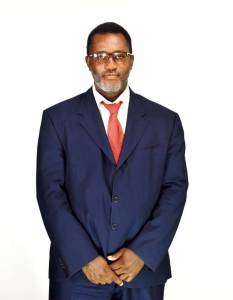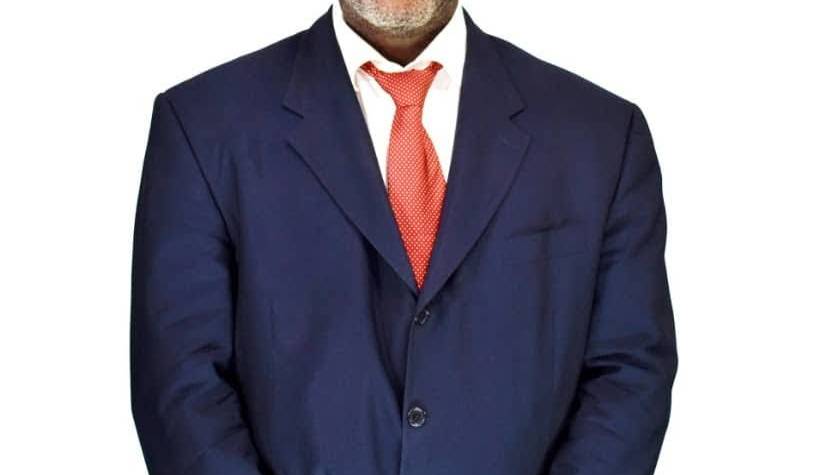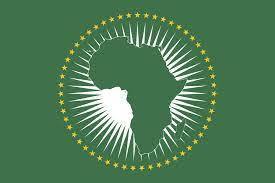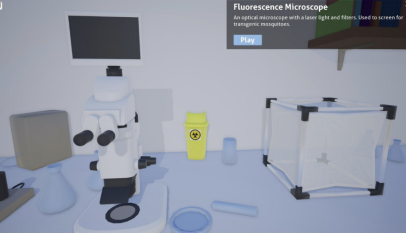INTERVIEW | How APSS is fostering private sector-academia synergy under the AfCFTA – EK Bensah
Emmanuel K Bensah Jr. is head of media and communications for the Africa Private Sector Summit (APSS), focused on fostering private sector-academia relations under the African Continental Free Trade Area (AfCFTA)

By Adam Alqali
Newspage: Series 1 of the Africa Private Sector Summit (APSS) was themed: “Doing Business under the Africa Continental Free Trade Area” and held virtually from March 8 to 12, 2021. Since the Summit brands itself as a departure from ‘Talk Shop’ summits, can you take us through what has happened since March in terms of implementing the resolutions of APSS Series 1?
Bensah: The biggest difference between the Africa Private Sector Summit (APSS) and other summits around the African Continental Free Trade Area (AfCFTA) is that the APSS sees itself not just as a ‘think tank’ but also as a ‘do tank’ supporting the work of the African Business Council (AfBC), the apex body promoting Pan-African business interests.
The main focus of APSS is getting the private sector and the academia to work together while also ensuring that the chambers of commerce play an active role in the process. There are so many conferences taking place around the private sector and AfCFTA however, the biggest question is what role should the private sector play in the AfCFTA? For us, this is an issue we are tackling head on. We have talked for too long hence the need to begin to see action.
One of the reasons why the conversation moved on to the chambers of commerce is because the chambers of commerce are supposed to be the ‘front-liners’ in the conversation on private sector’s role in the AfCFTA; even as the chambers of commerce are currently grappling with challenges we need to make them rethink how they relate with other actors in the private sector.
The chambers of commerce would be crucial in the AfCFTA’s implementation in every country, yet they have not featured prominently in the AfCFTA discussions. So, at APSS we felt this is an opportunity to do things differently working with the AfBC which is working closely with the AU on the AfCFTA. APSS is supporting AfBC’s work through action-oriented steps such as the draft bill on private sector which we are currently working on as well as the education trust fund.
We want a part of the income of the chambers of commerce to go into an educational trust fund for universities and other higher institutions of learning in Africa to use in training a new corps of African professionals with a better understanding of regional integration and issues around the AfCFTA. We held the maiden edition of APSS in March, and only three months later, we secured support from the Economic Commission for Africa (ECA) and the European Union (EU) to work on the draft bill on rights of the private sector.
This is a major outcome. In addition, we managed to get the Pan African Chamber of Commerce and Industry (PACCI) and Association of African Universities (AAU) to sign a memorandum of understanding to foster a working relationship between the two bodies towards improving private sector’s relations with the academia including the implementation of the education trust fund.
We believe the MOU between PACCI and AAU and the draft bill on rights of the private sector are two major milestones that came out of the maiden APSS. We are very happy with the level of implementation that has happened since the maiden conference, as not many conferences are able to achieve this kind of results within such a short period of time. To this end, we have been buoyed by that success to embark on APSS Series 2 come 19 – 22 October in Accra, Ghana and Series 3 by the first quarter of 2022.
Newspage: APSS Series 2 seeks to ‘Move the deliberations from planning to action-oriented implementation [of AfCFTA] through intentional commitments and stakeholders’ alliances – private sector, academia, labor, civil society organizations (CSOs), consumers, and the public sector.’ How crucial is the role of the private sector in the AfCFTA regime?
Bensah: The AfCFTA cannot work without these important groups, we need labour, civil society, trade unions among others to come on board. The AfCFTA Agreement has not necessarily provided for how they can be part of the process. The APSS is trying to empower the private sector to work with academia under the AfCFTA.
Yet, we are not only empowering the private sector to work with academia but are also empowering the private sector to work with labour unions, trade unions, civil society organizations and consumers. We are doing so to make sure they also buy into the idea that the AfCFTA needs them to succeed; we need to be inclusive and that entails bringing all these groupings onboard to make the AfCFTA a big game changer.
Newspage: APSS Series 2 is themed: ‘Awakening Africa’s Sleeping Giants of Africa in RECs and AfCFTA.” Can you help unpack these theme?
Bensah: The RECs are central to the AfCFTA’s implementation. You might not know that the Economic Community of West African States (ECOWAS) has a trade liberalization scheme which revolves around inclusive trade and integration; it is a kind of mini AfCFTA. It surely has its own challenges and so there are a lot of things that need to be improved upon but the fact that RECs like ECOWAS have existing trade liberalization schemes shows us the significance of the RECs in the AfCFTA’s implementation.
To this end, in 2015, the agreement establishing a Tripartite Free Trade Area (TFTA) among the Common Market for Eastern and Southern Africa (COMESA), the East African Community (EAC) and the Southern African Development Community (SADC) was launched. The West, North and Central Africa regions were left out of the TFTA which the AfCFTA now seeks to cover. I believe the REC’s experience with Free Trade Areas (FTAs) offer important lessons for the AfCFTA.
For example, COMESA offers lots of learning opportunities with regards to digital trade and digital payments which the AfCFTA can pick up and scale up at the continental level. The ECOWAS Trade Liberalization Scheme (ETLS) and SADC Free Trade Area also offer opportunities for learning in the implementation of the AfCFTA. We therefore have to work closely with RECs, we can’t wish them away, even if some of them may not be fit for purpose.
Newspage: The APSS’s definition of the private sector includes academia. What is APSS doing to bridge the gap between academia and industry so as to ensure that academic curricula is in line with what the industry needs?
Bensah: A lot of work needs to be done with academia, especially in the context of the role of the private sector in the AfCFTA. Notably, the private sector is where it is today because of academia. Hence across the world, some of the greatest minds in the private sector come from academia, people like Jeffrey Sachs, William Easterly and many others had transitioned from academia to multilateral organizations.
Therefore, academia has an important role to play in the AfCFTA and so it shouldn’t just be limited to teaching. So as APSS is emphasizing on creating synergy between academia and the private sector, it is also important that we stress on the importance of creating greater synergies between academia and industry because industry and private sector are two sides of the same coin.
I therefore think industry and academia should be talking to one another because industry is an important component of the private sector. As APSS supports the work of AfBC, we need to be very specific regarding what we want to do with industry as a crucial component of the private sector. Because the private sector is huge we need to do some compartmentalization since we don’t want to be all over the place and end up not achieving concrete results.
So APSS has outlined a couple of deliverables it is focusing on, we are already working on some of them like the draft bill of rights which would go a long way in changing the conversation on empowering the private sector including ensuring the private sector works in an ethical way. This is going to be akin to what the African Peer Review Mechanism (APRM) does with the State-Owned Enterprises (SOEs) Network which ensures companies adopt codes of conduct on how they conduct themselves across territories.
We would still need to identify how APSS would work with industry and I think that is something I can’t explain now because the short term goals we want to work on will only come out after Series 2 is over this October and when Series 3 happens by first quarter of next year in Rwanda, we would know what long term goals we would need to pursue.
Newspage: What is the APSS doing to ensure effective integration of youth-led and women-led SMEs in accessing the immense benefits of the AfCFTA by Africa’s private sector?
Bensah: The organisers of APSS are a consortium of organizations which include chambers of commerce, Federation of West African Chamber of Commerce and Industry (FEWACCI), the AfCFTA Policy Network (APN), among many other organizations. As someone from APN, what we do often is bring our strengths to bear on the work of the APSS, I think this is one of the areas we would need to bring our strengths to bear.
Therefore, as we are about to set up the APSS Media Network, we would also set up an APSS Youth Network and leverage APN’s strengths of engagements with youth-led organizations to bring youth onboard the conversation at APSS. We cannot talk about academia without talking about the youth; it’s important to prepare them for a future career in academia, where the academia is working with the private sector. They need to understand regional integration in this new African landscape.
With regards to women, Aspiration 6 of the AU’s Agenda 2063 speaks to a people- centered Africa where women and youths are inclusive. To that end, Agenda 2063 is crucial to the work we do at APSS. In consonance with Aspiration 6, we need to ensure that women and youth are also part of the conversation. We have started the conversation without women and youth because we first want to get the big guns on board.
The journey is a long one but I’m sure we will get there, given how far we have come in just 6 months, I’m very confident about our action-oriented team. No one is going to do it for us, as Africans we must do it ourselves, and Agenda 2063 is our guiding framework. Agenda 2063 is about the Africa We Want – and the Africa We Want is one in which the private sector, academia, civil society, trade unions etc are working collaboratively for the benefit of the African people.
Editor’s note: This interview has been edited for length, clarity and flow













